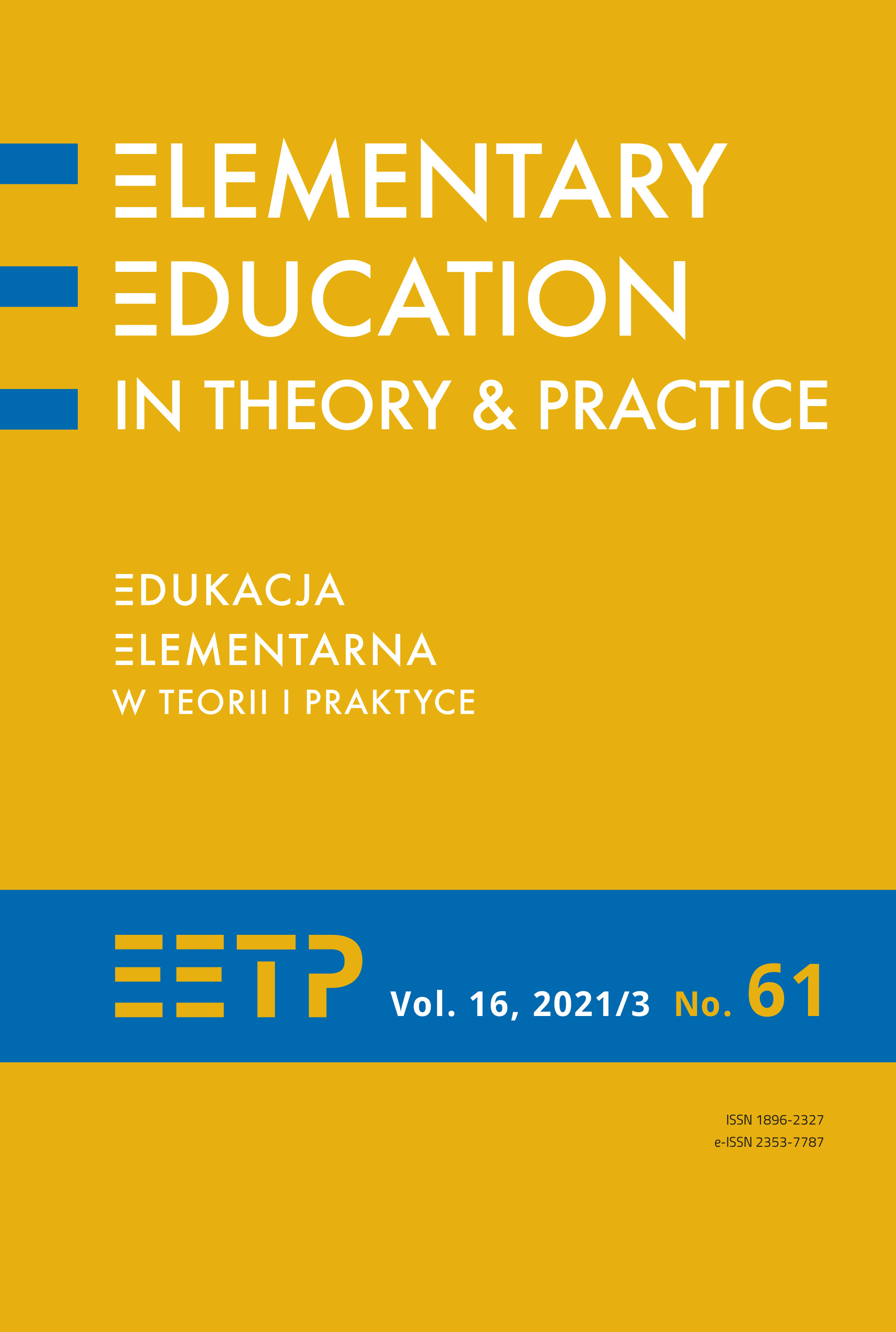Wprowadzenie
Abstrakt
One of the most important goals of modern education is to develop the dispositions and skills necessary for life-long independent learning. As pointed out by the European Council (2018), though learning by heart, memorizing facts or concepts is still an important skill, it is not sufficient to survive and thrive in modern knowledge-based societies. Much more crucial become these abilities which serve as tools for solving complex, interdisciplinary problems, such as: critical and creative thinking, formulating problems, predicting, drawing conclusions, computational thinking, planning and evaluating one’s own learning, generating new ideas or sharing/discussing knowledge with others.
Bibliografia
Katz L.G. (2010). STEM in early years. SEED papers, https://ecrp.illinois.edu/beyond/seed/katz.html (accessed: 22.07.2021).
Marton F., Saljo R. (1997). Approaches to learning, [in:] F. Marton, D. Hounsell, N. Entwistle (eds.), The experience of learning, Edinburgh: Scottish Academic Press, pp. 39–58.
Simoncini K., Lasen M. (2018). Ideas about STEM among Australian early childhood professionals: How important is STEM in early childhood education?, “International Journal of Early Childhood”, vol. 50, no. 3, pp. 353–369. DOI: 10.1007/s13158-018-0229-5.
Warburton K. (2003). Deep learning and education for sustainability, “International Journal of Sustainability in Higher Education”, vol. 4, no. 1, pp. 44–56. DOI: 10.1108/14676370310455332.
Copyright (c) 2021 Edukacja Elementarna w Teorii i Praktyce

Utwór dostępny jest na licencji Creative Commons Uznanie autorstwa – Bez utworów zależnych 4.0 Międzynarodowe.
1. Autor zgłaszając swój artykuł oświadcza, że jest Autorem artykułu (zwanego dalej Utworem) i:
- przysługują mu wyłączne i nieograniczone prawa autorskie do Utworu,
- jest uprawniony/a do rozporządzania prawami autorskimi do Utworu.
Oświadcza, że nie narusza praw autorskich osób trzecich i praw prawnych.
Oświadcza, że nie występuje żaden konflikt interesów.
2. Udziela Uniwersytetowi Ignatianum w Krakowie nieodpłatnej, niewyłącznej, nieograniczonej terytorialnie licencji do korzystania z Utworu na następujących polach eksploatacji:
- utrwalania utworu w formie papierowej, a także na nośniku cyfrowym lub magnetycznym;
- zwielokrotnienia utworu dowolną techniką, bez ograniczenia ilości wydań i liczby egzemplarzy;
- rozpowszechniania utworu i jego zwielokrotnionych egzemplarzy na jakimkolwiek nośniku, w tym wprowadzenia do obrotu, sprzedaży, użyczenia, najmu;
- wprowadzenia utworu do pamięci komputera;
- rozpowszechniania utworu w sieciach informatycznych, w tym w sieci Internet;
- publicznego wykonania, wystawienia, wyświetlenia, odtworzenia oraz nadawania i reemitowania, a także publicznego udostępniania utworu w taki sposób, aby każdy mógł mieć do niego dostęp w miejscu i czasie przez siebie wybranym;
- w zakresie praw zależnych do Utworu, obejmujących w szczególności prawo do dokonania koniecznych zmian w Utworze, wynikających z opracowania redakcyjnego i metodycznego, a także do dokonania tłumaczenia Utworu na języki obce.
Udzielenie licencji następuje z chwilą przekazania Utworu na rzecz Uniwersytetowi Ignatianum w Krakowie. Uniwersytet Ignatianum w Krakowie jest uprawniony do udzielania dalszych sublicencji do Utworu, w zakresie udzielonego prawa. Licencja jest ograniczona czasowo i zostaje udzielona na okres 15 lat, licząc od daty jej udzielenia.
Wyraża się zgodę i zachęca autorów do publikacji ich tekstu w Internecie (np. w repozytorium instytucji lub na jej stronie internetowej) przed lub podczas procesu składania tekstu jako, że może to prowadzić do korzystnych wymian oraz wcześniejszego i większego cytowania opublikowanego tekstu (Patrz The Effect of Open Access). Zalecamy wykorzystanie dowolnego portalu stowarzyszeń badawczych z niżej wymienionych:




